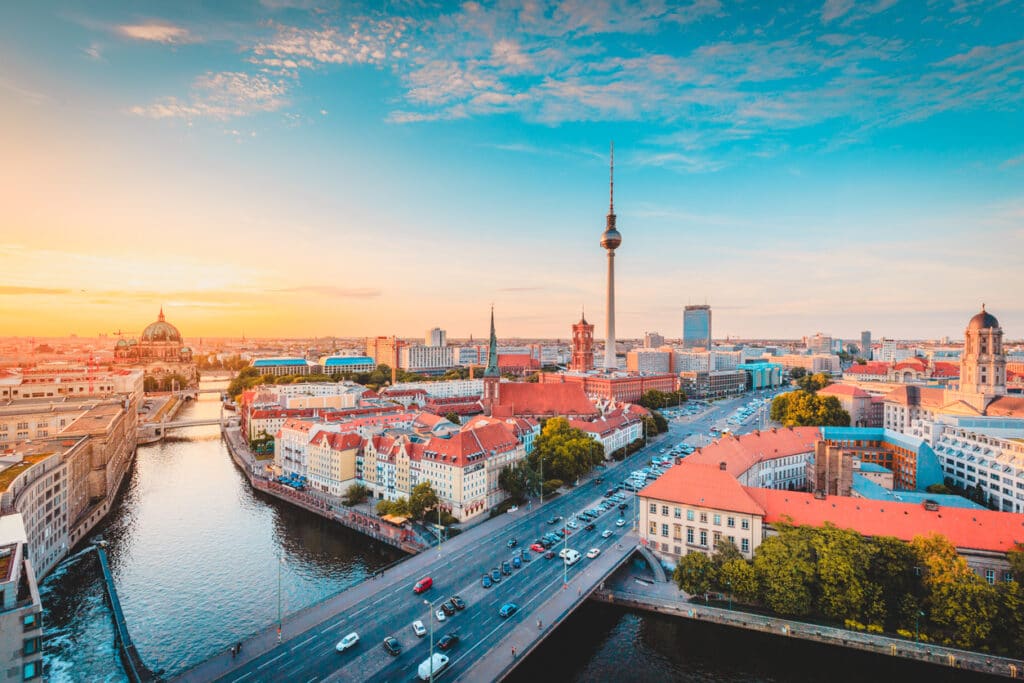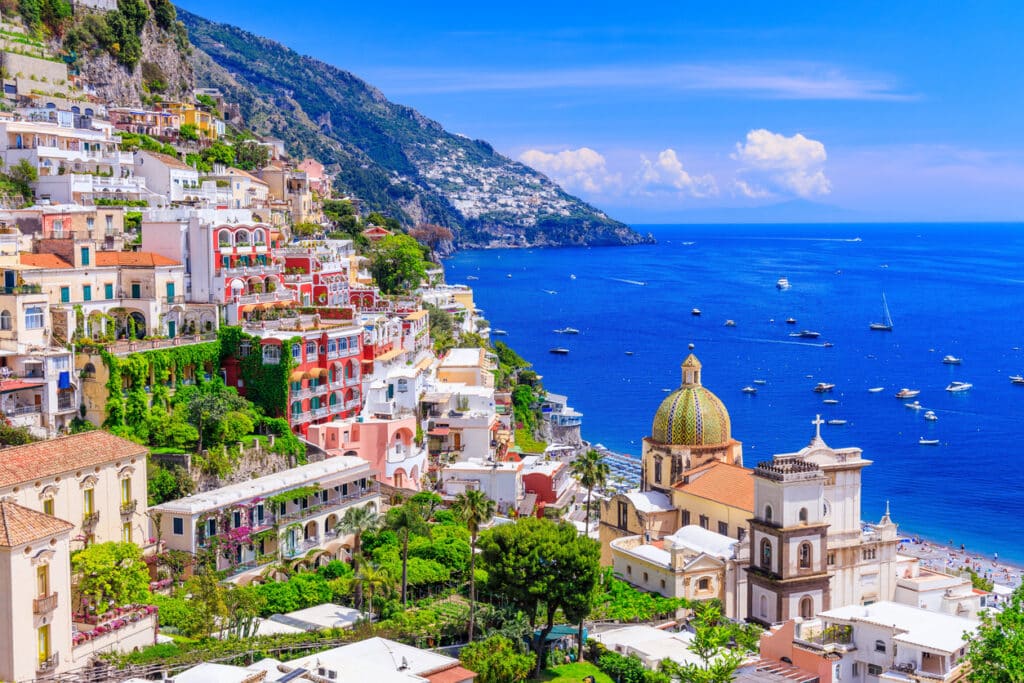As a U.S. expat, navigating the Portuguese property market can feel overwhelming—especially with unfamiliar legal requirements, regional differences, and cross-border financial considerations. This guide breaks down everything you need to know, from legal basics to the best places to buy, so you can approach your property search with confidence and clarity.
Legal requirements and restrictions for foreign property buyers in Portugal
One of the most reassuring aspects of real estate in Portugal for expats is the country’s open-door policy for foreign buyers. Portugal welcomes non-residents—including U.S. citizens—to purchase property with virtually no restrictions. You don’t need to be a resident or hold a special visa to buy, and you can own land, apartments, or commercial real estate outright.
Key legal requirements:
- NIF (Número de Identificação Fiscal): Before you can buy, you’ll need a Portuguese tax identification number. This is essential for all property transactions and can be obtained at a local tax office or through a legal representative.
- Legal representation: While not mandatory, hiring a local lawyer is highly recommended. They’ll help you navigate contracts, due diligence, and ensure your interests are protected.
- No ownership restrictions: There are no limits on the number or type of properties foreigners can buy, and you’re free to rent out your property if you wish.
💡 Pro Tip:
Be aware of additional costs such as property transfer tax (IMT), stamp duty, and notary fees. These typically add 6–8% to the purchase price.
Best locations for expat property investment: Lisbon, Porto, and Algarve comparison
Portugal’s diverse regions each offer unique advantages for expats. Here’s a closer look at the three most popular destinations for real estate in Portugal for expats:
Lisbon
- Vibe: Cosmopolitan, historic, and bustling with culture.
- Why expats love it: Excellent international schools, thriving tech and startup scene, and easy access to the rest of Europe.
- Property market: Prices are higher than elsewhere in Portugal, but rental demand is strong. Central neighborhoods like Baixa, Chiado, and Alfama are perennial favorites.
- Ideal for: Urban professionals, families, and investors seeking long-term appreciation.
Porto
- Vibe: Artistic, laid-back, and rich in tradition.
- Why expats love it: Lower cost of living than Lisbon, a vibrant food and wine scene, and a growing expat community.
- Property market: More affordable than Lisbon, with charming historic homes and modern apartments. Riverside areas like Ribeira and Foz are especially popular.
- Ideal for: Creative types, retirees, and those seeking a slower pace without sacrificing amenities.
Algarve
- Vibe: Coastal, sunny, and relaxed.
- Why expats love it: Stunning beaches, golf courses, and a large English-speaking community. The region is famous for its mild climate and outdoor lifestyle.
- Property market: Wide range of options, from luxury villas to affordable apartments. Towns like Lagos, Albufeira, and Tavira are expat favorites.
- Ideal for: Retirees, families, and anyone prioritizing lifestyle and leisure.
💡 Pro Tip:
Consider your lifestyle priorities—urban excitement, cultural immersion, or coastal relaxation—when deciding where to focus your property search.
Essential property search platforms and real estate websites for expats
Finding the right property is easier than ever, thanks to a range of online platforms tailored to real estate in Portugal. Here are some trusted resources to kickstart your search:
- Idealista (idealista.pt): The largest property portal in Portugal, with listings in English and robust search filters.
- Imovirtual (imovirtual.com): Another popular site with a wide range of residential and commercial properties.
- Casa Sapo (casa.sapo.pt): Offers detailed listings and neighborhood guides.
- Rightmove Overseas (rightmove.co.uk/overseas-property/in-Portugal): UK-based, but widely used by international buyers for its English-language interface.
- Local real estate agencies: Many agencies, such as Remax Portugal and Engel & Völkers, have English-speaking agents and expat-focused services.
💡 Pro Tip:
Always verify listings and work with reputable agents. Scams do exist, so never send money or personal information without proper due diligence.
Step-by-step property purchase process and legal procedures
Buying real estate in Portugal for expats involves several clear steps. Here’s what to expect:
1. Obtain your NIF (tax number)
You’ll need this before you can sign any contracts or open a Portuguese bank account.
2. Open a Portuguese bank account
This is required for transferring funds and paying property-related expenses.
3. Find your property
Use online platforms, local agents, and property tours to identify suitable options.
4. Make an offer and sign the promissory contract (Contrato de Promessa de Compra e Venda)
This legally binding agreement outlines the terms of the sale and typically requires a 10–30% deposit.
5. Due diligence and legal checks
Your lawyer will verify property ownership, check for debts or liens, and ensure all permits are in order.
6. Final deed (Escritura)
The sale is completed at a notary’s office, where the final payment is made and the property is officially transferred to your name.
7. Registration
The property must be registered in your name at the local land registry office.
Timeline: The process typically takes 1–3 months from offer to completion, depending on complexity.
Financing options and mortgage requirements for international buyers
Securing financing for real estate in Portugal for expats is possible, but the process may differ from what you’re used to in the US.
Mortgage options:
- Portuguese banks: Many offer mortgages to non-residents, typically financing up to 70% of the property value. Terms range from 5 to 30 years.
- International lenders: Some U.S. and European banks provide cross-border mortgage products for expats.
- Cash purchases: Many expats choose to buy outright, especially for lower-priced properties or to streamline the process.
Requirements:
- Proof of income and employment
- Credit history (Portuguese banks may request a credit report from your home country)
- Down payment (usually 30% or more for non-residents)
- Property appraisal and insurance
Practical considerations:
- Interest rates in Portugal are generally lower than in the U.S., but terms and fees can vary.
- Factor in currency exchange risks if your income is in U.S. dollars.
- Consult with a mortgage broker or financial advisor familiar with expat transactions to compare options and avoid surprises.
Ready to make your move? Get expert guidance for a smooth transition
Buying real estate in Portugal for expats is an exciting step—but it’s also a big financial and tax decision. The right support can make all the difference. Our team of U.S. expat tax experts is here to help you navigate cross-border tax implications, reporting requirements, and financial planning, so you can focus on enjoying your new home with peace of mind.
Frequently Asked Questions
-
Can U.S. expats buy real estate in Portugal?
Yes, U.S. expats can freely buy real estate in Portugal. There are no restrictions on foreign ownership, and you don’t need to be a resident to purchase property.
-
What are the main costs involved in buying real estate in Portugal for expats?
Expect to pay property transfer tax (IMT), stamp duty, notary and registration fees, and legal costs—typically totaling 6–8% of the purchase price.
-
Is it possible to get a mortgage as a U.S. expat buying property in Portugal?
Yes, many Portuguese banks offer mortgages to non-residents, usually up to 70% of the property value. Requirements include proof of income, a down payment, and a good credit history.
-
Which areas are best for expats buying real estate in Portugal?
Lisbon, Porto, and the Algarve are the most popular regions for expats, each offering unique lifestyle and investment opportunities.
-
Do I need to pay U.S. taxes on my property in Portugal?
As a U.S. citizen, you must report foreign property income and certain assets to the IRS. Owning property abroad can have U.S. tax implications, so consult an expat tax advisor.

 Connect on LinkedIn
Connect on LinkedIn

